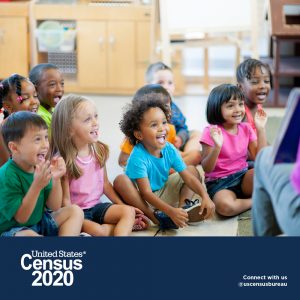Starting on March 12, households will begin receiving U.S. Census Bureau letters in the mail with instructions on how to complete the 2020 Census, which can be done online, by mail or over the phone. This is the first time the public will be asked to complete the census online.
The King County Library System (KCLS) is doing its part to help make sure that everyone in King County gets counted by increasing access to the census. In working to reduce technology barriers, KCLS is providing designated computer stations to take the census online from March 12 to April 30. Computer access is available to all, and no library card, documentation or identification is needed to take the census at KCLS. Find a KCLS library near you, or contact Ask KCLS with questions.
“As a trusted community resource, KCLS is here to help connect you to the 2020 Census,” said KCLS Executive Director Lisa Rosenblum. “An accurate census count is important to our communities, and anyone may take the census on one of our designated computers. You don’t need a library card to be counted."
The KCLS Foundation also received a $15,000 Regional Census Fund grant from the Seattle Foundation to help reduce language barriers to the 2020 Census. The grant was used to expand KCLS’ census education and outreach efforts to non-English speaking communities.
Every 10 years, the U.S. counts every person living in the country through a national census. The results inform how an estimated $1.5 trillion in federal funding is distributed for things that affect us all for the next decade—from schools and affordable housing, to hospitals and public transportation. The count also determines how many representatives each state sends to Congress.
The census is safe, and your personal information is protected by law. The 2020 Census will not ask if you are a U.S. citizen, and your census answers cannot be shared with ICE, other law enforcement, public assistance programs or other agencies, and cannot be used to identify people for deportation. All answers are kept confidential and used only to produce statistics.

